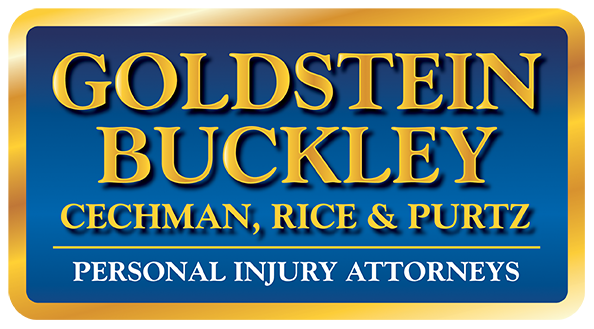In the vibrant and sun-soaked state of Florida, where outdoor activities abound, the clash between motorists and cyclists on the roads is not uncommon. When a bicycle accident occurs, the aftermath can be both physically and legally challenging. One of the critical aspects that emerge from such incidents is the determination of liability – who is at fault: the motorist or the cyclist? Understanding the legal nuances and requirements in Florida is essential for both parties involved.
Florida’s Comparative Negligence System
Florida operates under a comparative negligence system, meaning that fault can be distributed among multiple parties involved in an accident. This legal framework allows for a more nuanced approach when assigning liability, taking into account the percentage of fault attributable to each party. In the context of bicycle accidents, this means that both the motorist and the cyclist may share responsibility based on their actions leading up to the incident.
Motorist Liability in Bicycle Accidents
Motorists in Florida are obligated to exercise a duty of care towards all road users, including cyclists. Failure to adhere to traffic rules, distracted driving, speeding, or driving under the influence are common factors that can contribute to a motorist’s liability in a bicycle accident. When a collision occurs, it is crucial to assess the circumstances and determine if the motorist’s actions breached their duty of care.
Florida law requires motorists to provide a safe distance when passing cyclists on the road, typically at least three feet. Failing to adhere to this minimum clearance could result in liability if an accident ensues. Moreover, if a motorist ignores traffic signals, runs red lights, or fails to yield the right of way to a cyclist when required, they may be held responsible for any resulting injuries or damages.
Cyclist Responsibility and Legal Requirements
While motorists bear a significant responsibility for road safety, cyclists also have legal obligations to ensure their own safety and that of others. Florida law mandates that cyclists follow the same traffic rules as motorists, including stopping at stop signs, obeying traffic signals, and signaling turns. Riding against the flow of traffic, failing to use lights at night, or disregarding traffic laws may contribute to a cyclist’s liability in the event of an accident.
Wearing a helmet is not only a crucial safety measure but can also impact liability in a bicycle accident. Florida law does not mandate helmet use for cyclists aged 16 and older; however, in case of an accident, not wearing a helmet might be considered as a factor contributing to the severity of injuries, potentially affecting liability distribution.
Proving Liability in Bicycle Accident Cases
Establishing liability in a Florida bicycle accident requires a thorough examination of the evidence. This may include eyewitness testimonies, police reports, traffic camera footage, and medical records. The legal system aims to determine the degree of negligence or fault attributable to each party involved, and this determination significantly influences the outcome of any legal proceedings or insurance claims.
In some cases, witnesses may be called upon to provide insights into the technical aspects of the accident, such as accident reconstruction or the assessment of injuries. Their testimony can play a pivotal role in demonstrating the sequence of events and helping the court understand the dynamics of the collision.
Navigating Insurance Claims for Bicycle Accidents
Insurance companies play a crucial role in resolving liability disputes arising from bicycle accidents. Both motorist and cyclist may need to file claims with their respective insurance providers to seek compensation for medical expenses, property damage, and other losses. Understanding the intricacies of insurance policies, coverage limits, and the claims process is essential for ensuring a fair resolution.
When filing a claim, it is imperative to provide detailed documentation, including medical bills, repair estimates, and any other relevant evidence. Insurance companies will conduct their own investigations to determine liability, and the comparative negligence system in Florida will be applied to allocate responsibility and calculate compensation accordingly.
The Human Impact
Beyond the legal complexities, it’s essential to recognize the human impact that bicycle accidents can have on individuals and their families. The aftermath of such incidents often involves physical injuries, emotional trauma, and financial burdens. Whether you’re a motorist or a cyclist, understanding the potential consequences of an accident underscores the importance of promoting road safety and adhering to traffic laws.
Promoting Road Safety and Awareness
Preventing bicycle accidents requires a collective effort to promote road safety and awareness. Motorists and cyclists alike can contribute to a safer road environment by staying informed about traffic laws, respecting each other’s rights on the road, and exercising caution in shared spaces. Public awareness campaigns and educational initiatives play a crucial role in fostering a culture of safety that benefits everyone.
Infrastructure Improvements
Enhancing infrastructure is another key aspect of reducing bicycle accidents. Well-designed bike lanes, clear signage, and improved visibility can contribute to safer conditions for cyclists. Municipalities and local authorities play a pivotal role in investing in infrastructure that accommodates and protects all road users, fostering a sense of security for cyclists and motorists alike.
Community Engagement and Advocacy
Community engagement and advocacy are powerful tools in promoting bicycle safety. Local organizations, cycling clubs, and advocacy groups can work together to raise awareness, lobby for improved infrastructure, and educate the public about the rights and responsibilities of cyclists and motorists. By fostering a sense of community responsibility, we can contribute to a safer and more harmonious coexistence on the roads.
In the aftermath of a bicycle accident, understanding the legal complexities and navigating the insurance landscape can be overwhelming for both motorist and cyclist. Seeking legal guidance from experienced personal injury attorneys is crucial to ensure that rights are protected, and fair compensation is obtained.
At Goldstein, Buckley, Cechman, Rice & Purtz, P.A., our team of seasoned attorneys has a wealth of experience in handling bicycle accident cases in Florida. We understand the nuances of the state’s laws and can provide experienced guidance to navigate the legal process. Contact us today to schedule a consultation and let us help you secure the justice and compensation you deserve in the aftermath of a bicycle accident. Your rights matter, and we are here to advocate for you.
